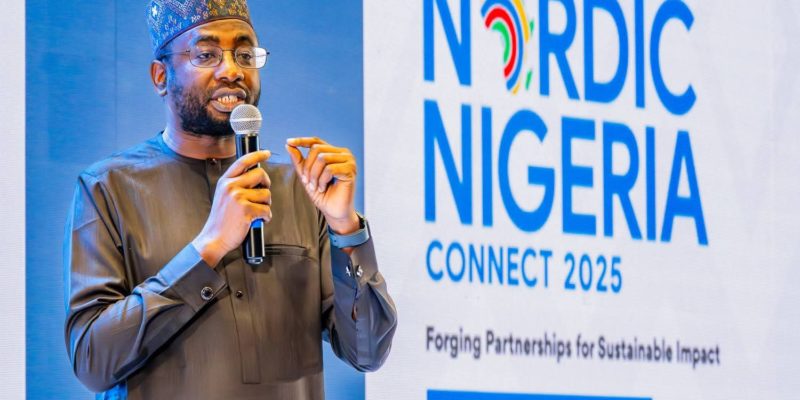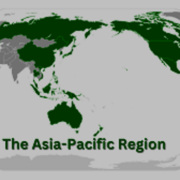Nigeria Charts Bold Path to a Sustainable Digital Future — NITDA
Nigeria is charting an ambitious path toward a sustainable digital future anchored on innovation, inclusivity, and resilience—a vision central to President Bola Ahmed Tinubu’s Renewed Hope Agenda. The agenda focuses on reforming the economy for sustainable growth, strengthening governance, enhancing infrastructure, and accelerating diversification through digitalization and innovation.
RELATED: NITDA urges Corps members and interns to build startups, offers innovation support
Delivering a keynote address at the Nordic Nigeria Connect 2025 in Lagos, the Director General of the National Information Technology Development Agency (NITDA), Kashifu Inuwa Abdullahi, emphasized that Nigeria’s digital ambition goes beyond physical infrastructure—it is about building a new economic operating system that fosters inclusivity, resilience, and digital prosperity.
A New Digital Blueprint for Nigeria
Speaking on the theme “Nigeria’s Digital Infrastructure Ambition and Path to Sustainability,” Abdullahi explained that the national digital vision rests on two critical frameworks: the Shared Digital Backbone and the Operational Backbone.
- Shared Digital Backbone: This represents Nigeria’s hardware infrastructure—terrestrial fibre optics, subsea cables, green data centers, and sovereign cloud services that secure national data and ensure digital sovereignty.
- Operational Backbone: This software layer constitutes Nigeria’s Digital Public Infrastructure (DPI), encompassing digital identity systems, payment frameworks, and secure data exchange platforms. Together, they form a unified national digital ecosystem empowering startups to create homegrown solutions.
Building Digital Independence and Security
Referencing the recent Amazon Web Services (AWS) outage that disrupted several African nations, Abdullahi underscored the need for digital independence.
“Relying solely on foreign cloud regions does not ensure business continuity or sovereignty. We must build capacity for digital self-determination,” he said.
The Three Pillars of Nigeria’s Digital Sustainability
Abdullahi identified Policy, People, and Partnerships as the three foundational pillars driving Nigeria’s sustainable digital transformation.
1. Policy Pillar
Nigeria is creating a pro-innovation regulatory environment that fosters growth and investor confidence. With frameworks such as the Nigeria Startup Act and the Data Protection Act, the country is laying a foundation for a predictable, rights-based digital economy.
2. People Pillar
Through initiatives like the National Digital Literacy Framework and the Three Million Technical Talent (3MTT) Programme, Nigeria is building a self-sustaining talent engine to empower citizens with the skills needed to design and drive digital innovation.
3. Partnership Pillar
Nigeria is strengthening strategic partnerships with global allies, transitioning from ad-hoc collaborations to structured alliances. Abdullahi highlighted ongoing collaborations in Artificial Intelligence (AI) development, cloud computing, and renewable energy, noting that the Nordic region is a key partner in Nigeria’s digital journey.
Major Digital Infrastructure Projects Underway
Abdullahi unveiled several ongoing initiatives transforming Nigeria’s digital landscape:
- Project BRIDGE: Expanding Nigeria’s terrestrial fibre network to 125,000 kilometres through public-private partnerships (PPPs).
- National Sovereign Cloud Initiative: Developing a competitive data storage ecosystem within Nigeria’s jurisdiction.
- Nigeria Stack: Enabling nationwide digital identity, payments, and secure data exchange systems.
- OneGOV Platform: Integrating all government services under a unified digital portal.
- NCAIR Projects: Driving AI innovation through the AI Collective and N-ATLAS, Nigeria’s indigenous large language model.
Eight-Pillar National Digital Strategy
Nigeria’s digital transformation agenda aligns with the Eight-Pillar National Digital Economy Policy and Strategy (NDEPS), which focuses on:
- Developmental Regulation
- Digital Literacy and Skills
- Solid Infrastructure
- Service Infrastructure
- Digital Services Development and Promotion
- Soft Infrastructure
- Digital Society and Emerging Technologies
- Indigenous Content Development & Adoption
This framework emphasizes inclusivity, green energy adoption, digital trust, and innovation through PPPs, ensuring no one is left behind in Nigeria’s digital evolution.
Towards a Sustainable and Inclusive Digital Future
The NITDA DG concluded with a call for collective effort from government, industry, and international partners to sustain the country’s digital transformation.
“With a clear vision, deliberate strategy, and inclusive policy frameworks, Nigeria will not only achieve digital sustainability — we will lead Africa’s digital transformation,” Abdullahi declared.






























